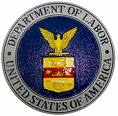National Labor Relations Board Rejection
Post Views 0Last week, the National Labor Relations Board rejected the arbitration agreement which would require employees of D.R. Horton, a homebuilder, to refrain from enforcing their class action right. After the Supreme Court’s ruling with a case last year, AT&T Mobility v. Concepcion, it has become much easier for the defendants to enforce those arbitration agreements.
The National Labor Relations Board is now being labeled as changing the game, so to speak. The different courts in areas all around the United States are already rejecting arguments from the defense that Concepcion does protect the class action waivers when it comes to employment and labor agreements.
A federal district judge in the San Francisco area rejected the O’Melveny & Myers argument in July. The argument was that Concepcion prevented the class challenge with the arbitration agreement with the different employees. In the same sense, a federal district judge in Manhattan denied Citigroup the motion to discharge a lawsuit that had been brought upon them by loan officers who were seeking money for overtime. This situation took place in November. It is believed that in both cases, from July and November, Concepcion did not apply and the claims were actually brought under federal terms, not the state employment law.
Because lawyers for AT&T won their ruling in April, a lot of consumer defendants with class action lawsuits are making attempts to cite Concepcion as a means of persuading the judge. However, the case involving D.R. Horton had to do with a federal act and not the state law which is why citing Concepcion simply did not work for this case.
Philip Berkowitz, from Littler Mendelson, has said, “The board is saying that our workplace laws essentially take precedent over the [Federal Arbitration Act.]” Berkowitz believes that the decision made by the NLRB helps to provide labor lawyers with clarity on which types of arguments and agreements can pass under the board.
There have been many discussions on Concepcion and how it can be applies to employment circumstances. There is definitely not a lack of discussion when it comes to this particular topic. In fact, the yearly report on workplace class actions mentions and spoke about 215 different rulings where Concepcion was cited in the federal courts and the state courts in one year alone. Gerald L. Maatman Jr., who works for Seyfarth, the company that produces the annual report, believes that even more discussion will come into play on the particular topic, the use of Concepcion in federal and state courts, this coming year. He says, “”[Employers in all 50 states] are operating on a playing field in flux,” He also says, “Employment lawyers advising companies on workplace arbitration agreements are very busy these days.”
National Labor Relations Board Rejection by Harrison Barnes



 Top Canadian Companies You Want to Work For
Top Canadian Companies You Want to Work For  US Dollar Gaining Momentum
US Dollar Gaining Momentum  Expected Changes in 2016 to the Workplace
Expected Changes in 2016 to the Workplace  Amazon May Have a Better Grasp on Workplace Culture
Amazon May Have a Better Grasp on Workplace Culture